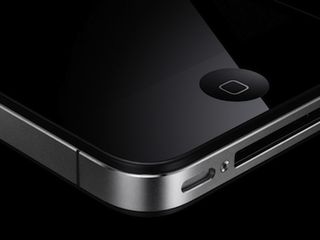ITC Issues Import Ban on Several Models of iPhone, iPad
The battle between Samsung and Apple rages on.
The International Trade Commission has issued an import ban preventing Apple from importing several models of iPhone and iPad. The ban came after an ITC ruling that Apple had violated Samsung-owned patents related to cellular technology.

The notice, dated June 4 and published via the ITC website, names the AT&T models of the iPhone 3GS and iPhone 4 as well as 3G versions of the original iPad and iPad 2. It details a limited exclusion order and a cease and desist order that prohibits Apple from importing or selling or distributing the aforementioned devices within the United States.
While a ban on the sale of multiple models of iPhone and iPad is no doubt bad news for Apple, it's not over yet. The ban doesn't go into effect until after a 60-day President review period and Apple still has the right to appeal the ruling to the U.S. Court of Appeals for the Federal Circuit. In fact, the company has said it plans to do just that.
Speaking to AllThingsD, Apple spokesperson Kristin Huguet said:
"Today’s decision has no impact on the availability of Apple products in the United States. Samsung is using a strategy which has been rejected by courts and regulators around the world. They’ve admitted that it’s against the interests of consumers in Europe and elsewhere, yet here in the United States Samsung continues to try to block the sale of Apple products by using patents they agreed to license to anyone for a reasonable fee."
That said, if the appeal fails, it won't be all that bad. None of the newest iPhone or Pad models are included in the ban, which means Apple won't lose too much money if the ITC ban is upheld by the U.S. Court of Appeals. Speaking to Apple Insider, Maynard Um of Wells Fargo Securities said the ban won't impact Apple's bottom line in any significant way.
Stay on the Cutting Edge
Join the experts who read Tom's Hardware for the inside track on enthusiast PC tech news — and have for over 25 years. We'll send breaking news and in-depth reviews of CPUs, GPUs, AI, maker hardware and more straight to your inbox.
-
glasssplinter "Samsung continues to try to block the sale of Apple products by using patents they agreed to license to anyone for a reasonable fee." Yet crapple decided that it wasn't a reasonable fee to them so they just went ahead and used it anyway. Crapple sells their icrap but I don't think the prices are reasonable so maybe I should just steal it from them and see what they think about that. Maybe a fine of $1bn is coming down the pipe for crapple.Reply
-
techcurious iPhone 3GS, iPhone 4 ( I'm assuming that doesn't include iPhone 4S) and the original iPad and iPad 2? So this is just a symbolic victory then. If those items are not already phased out, they were probably about to be anyway. Samsung may have inadvertently boosted Apple's bottom line by forcing Apple fans to buy newer, more expensive, versions of those products. But still, even a symbolic slap in the face of Apple is always a good thing.. Apple has a lot of nerve whining about their products being banned, when they wrote the book on preventing competitors from selling their products!Reply -
falchard Kristin Huguet should really keep up with the company she represents. I mean aren't they doing exactly the same thing with far weaker patents?Reply -
gm0n3y So with this ban, in another 60 days plus appeal time (probably another 6 months), Apple will have to stop selling phones (iPhone 3GS/4) and tablets (iPad 1/2) that they no longer sell. Not a waste of money in the court system at all...Reply -
house70 Not only has Apple not seen a dime from that failed lawsuit last year, now it got slapped in the face with this. What goes around comes around. This is not about money, it's a moral story.Reply -
fernandogmd Apple got a billion from Samsung... Samsung passes that billion over the next batch of components that sells to Apple (maybe adds half a billion to that for added costs) ..Samsung wins all over!!!Reply -
TeraMedia If the appeal fails, then it adds another data point supporting Samsung going after Apple (and vice versa) for other similar patent violations on similar types of patents. It also paves the way for compensation - if the items were banned due to patent infringement, then it follows that those items did indeed infringe upon patents, and therefore royalties are due to the patent-holder(s).Reply
Most Popular


